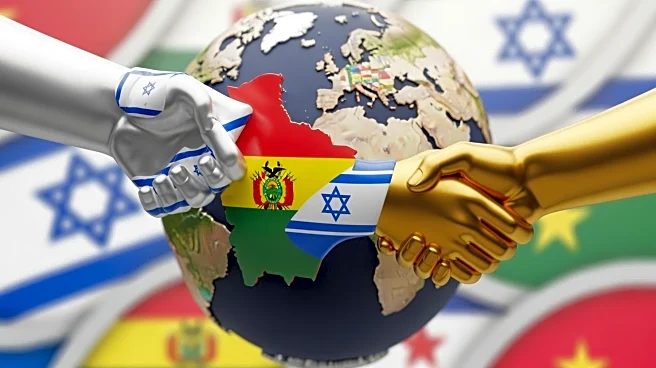What's Happening?
Bolivia's newly elected president, Rodrigo Paz, has announced plans to restore diplomatic relations with Israel, marking a significant shift in the country's foreign policy. After two decades of strained
relations under the far-left MAS party, Paz's election signals a move towards re-engagement with Israel and the United States. Paz's first foreign policy call was with Israeli Foreign Minister Gideon Sa'ar, who proposed fully restoring diplomatic ties. Paz affirmed his intention to renew bilateral relations, emphasizing Bolivia's commitment to reopening to the world.
Why It's Important?
The restoration of diplomatic relations between Bolivia and Israel represents a major shift in Bolivia's foreign policy, potentially impacting regional dynamics in Latin America. This move could lead to increased cooperation in various fields, including trade, technology, and cultural exchanges. For Israel, renewing ties with Bolivia strengthens its diplomatic presence in the region and opens opportunities for collaboration. The change in Bolivia's stance may also influence other Latin American countries' foreign policies, potentially leading to broader geopolitical shifts.
What's Next?
Following Paz's inauguration, Bolivia and Israel are expected to initiate a gradual process of renewing relations, including the return of ambassadors and reopening of embassies. Israel plans to send an official representative to Paz's inauguration, signaling the start of diplomatic engagement. Both countries may explore opportunities for collaboration in areas such as trade, technology, and cultural exchanges, fostering stronger bilateral ties.
Beyond the Headlines
The renewal of relations may have cultural implications, as Bolivia's previous severance of ties affected Israeli tourism and cultural exchanges. Restoring diplomatic ties could lead to increased travel and cultural interactions between the two nations, enhancing mutual understanding and cooperation.









